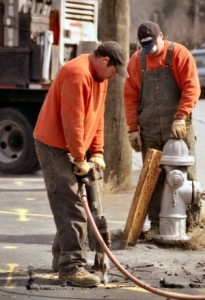 On April 28, 2016, the Florida Supreme Court declared unconstitutional the mandatory fee schedule in section 440.34, Florida Statutes (2009), which eliminated the requirement of a reasonable attorney’s fee to a successful claimant. The ruling, in Castellanos v. Next Door Company, et al., sent shock waves through the workers’ compensation community. Many within the business and insurance industries instantly began howling that the sky was falling. Their protestations, amounting to hyperbole, are overblown.
On April 28, 2016, the Florida Supreme Court declared unconstitutional the mandatory fee schedule in section 440.34, Florida Statutes (2009), which eliminated the requirement of a reasonable attorney’s fee to a successful claimant. The ruling, in Castellanos v. Next Door Company, et al., sent shock waves through the workers’ compensation community. Many within the business and insurance industries instantly began howling that the sky was falling. Their protestations, amounting to hyperbole, are overblown.
Marvin Castellanos was injured in the course and scope of his employment. His employer’s workers’ compensation insurance carrier denied benefits, raising twelve defenses. Through the assistance of an attorney, Mr. Castellanos prevailed in his workers’ compensation claim. The Judge of Compensation Claims (JCC) determined that claimant’s attorney devoted 107.2 hours of “reasonable and necessary” time litigating the complex case. However, because section 440.34 limited a claimant’s ability to recover attorney’s fees to a sliding scale based on the amount of workers’ compensation benefits obtained, the fee awarded to Castellanos’ attorney amounted to $164.54, or $1.53 per hour.
The JCC had no choice. Section 440.34 barred him from awarding a reasonable attorney’s fee. The Florida Supreme Court considered this arbitrary and capricious constraint as unconstitutional under both the Florida and United States Constitutions.
 Florida Injury Attorney Blawg
Florida Injury Attorney Blawg









